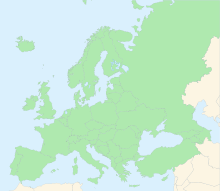


European Heritage Days (EHD) is a joint action of the Council of Europe and the European Commission involving all 50 signatory states of the European Cultural Convention under the motto, Europe: a common heritage. The annual programme offers opportunities to visit buildings, monuments and sites, many of which are not normally accessible to the public. It aims to widen access and foster care for architectural and environmental heritage. These events are also known as Doors Open Days and Open Doors Days in English-speaking countries.
The event began in France in 1984, with La Journée portes ouvertes dans les monuments historiques, sponsored by the Ministry of Culture. In 1985, in Granada, at the 2nd European Conference of Ministers responsible for Architectural Heritage, the French Minister of Culture proposed that the project be internationalised under the Council of Europe. The Netherlands held their first Open Monumentendag in 1987. Sweden and the Republic of Ireland joined in 1989, as well as Belgium and Scotland in 1990.
In 1991 these events were united as European Heritage Days at the initiative of the Council of Europe, supported by the EU. By 2010, 50 signatory states of the European Cultural Convention had joined the EHDs. The most recent European Heritage Days event was hosted by Armenia in September 2019.[1]
The Directorate General IV – Education, Culture and Heritage, Youth and Sport of the Council of Europe, in close cooperation with the Directorate General for Education and Culture of the European Commission, ensures the general orientation, definition and execution of the tasks to be achieved within the framework of the EHD. The Secretariat of the EHD is carried out by the Directorate of Culture and Cultural and Natural Heritage, under the responsibility of the Council of Europe's Steering Committee for Cultural Heritage.
Participating member states of the European Heritage Days are:

This idea is popular outside Europe, too, with similar schemes in Canada since 1974 in Alberta, the United States[citation needed], Australia,[5] and other countries, at various times of year. In Argentina and Uruguay the corresponding Día del Patrimonio is held on the last weekend of September, while in Chile the same event is held on the last Sunday of May.
| International |
|
|---|---|
| National |
|